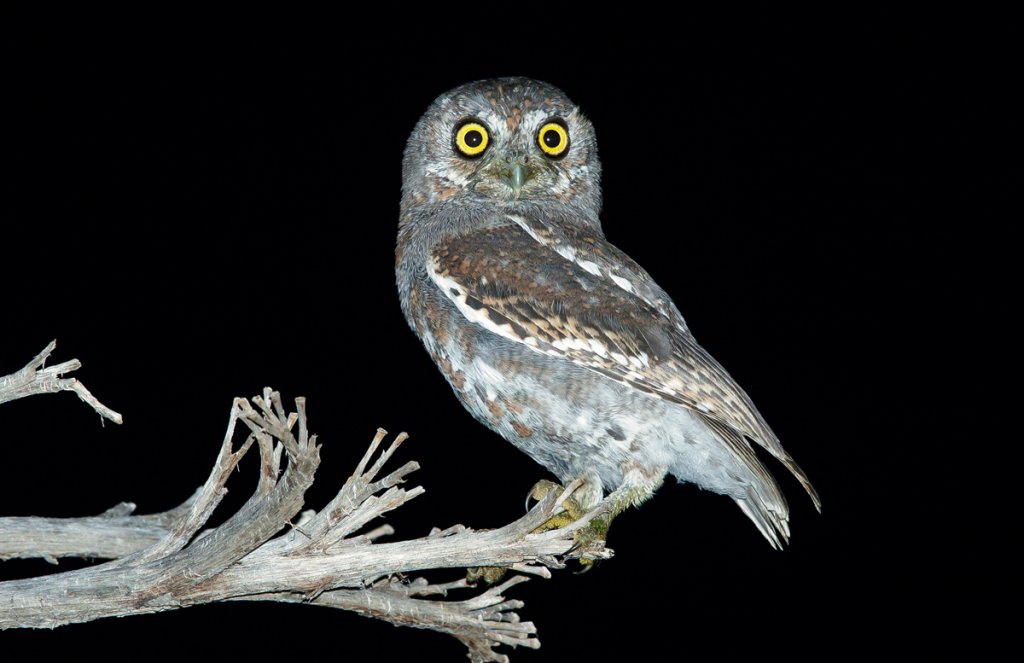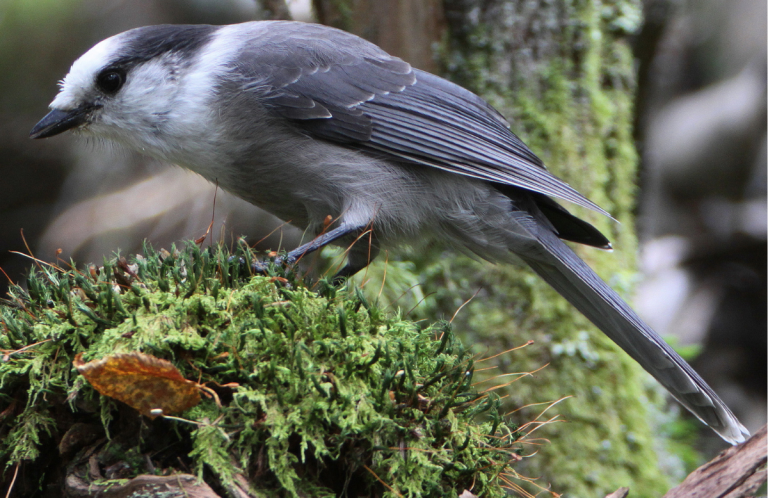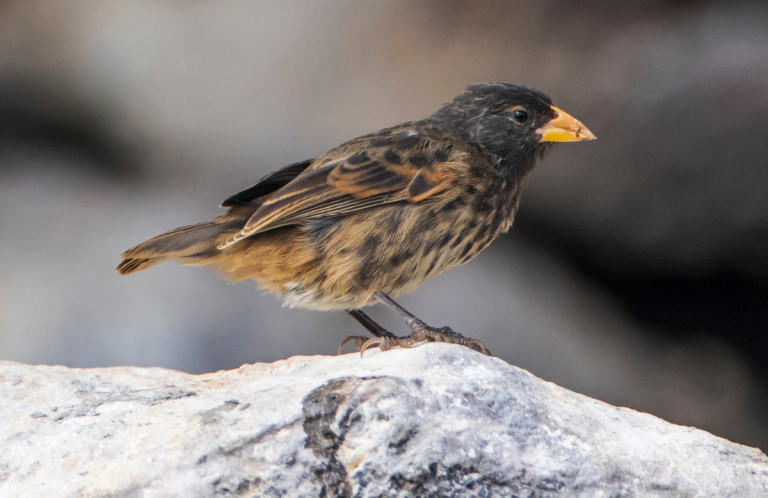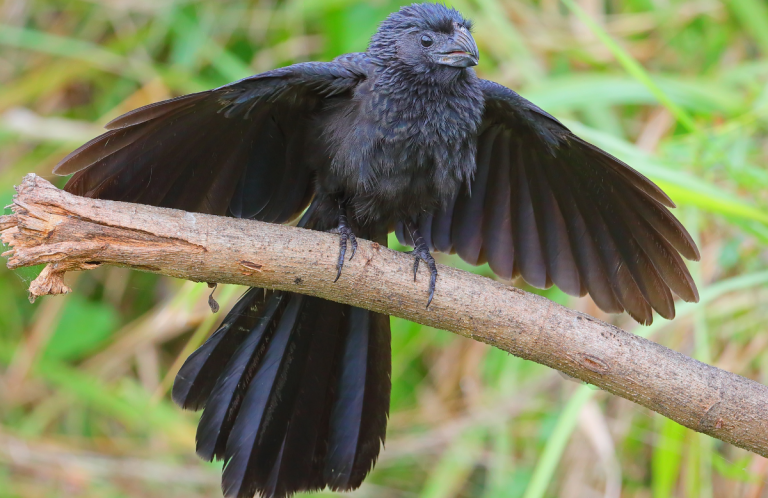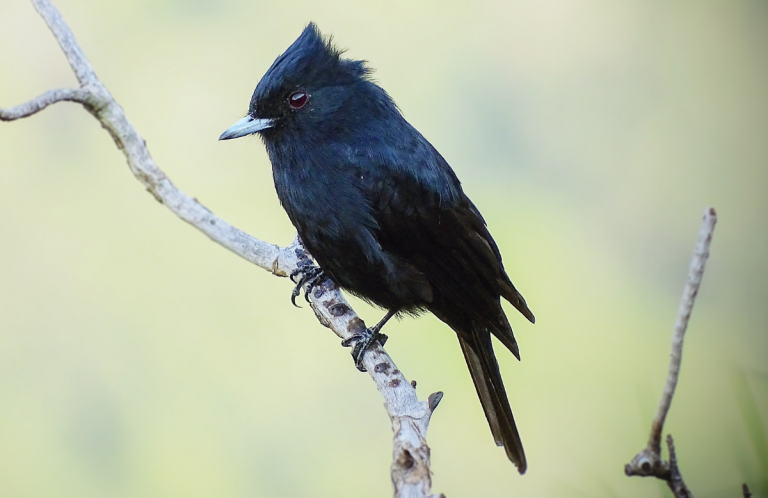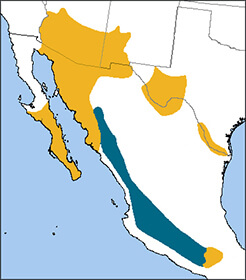 The 1.4-ounce Elf Owl is the smallest in North America: about the size of a sparrow and just as small as Peru's Long-whiskered Owlet. Unlike many owls, these birds are not aggressive and will “play dead” or retreat in a dangerous situation. This owl has more than a dozen different vocalizations, including a high-pitched whinny or chuckle.
The 1.4-ounce Elf Owl is the smallest in North America: about the size of a sparrow and just as small as Peru's Long-whiskered Owlet. Unlike many owls, these birds are not aggressive and will “play dead” or retreat in a dangerous situation. This owl has more than a dozen different vocalizations, including a high-pitched whinny or chuckle.
Elf Owls have declined as habitat has been developed for homes and agriculture. Riparian areas in their range are under threat due to water diversion for agriculture and household use, as well as invasive plants (especially salt cedar). With only about 150,000 individuals remaining, the species is listed as endangered in California and is on the 2014 Watch List.
Telephone Pole Nester
The Elf Owl makes its nest in natural cavities and abandoned woodpecker holes found in saguaro cacti and oak and sycamore trees. They also use man-made structures for nesting, which is a plus for this declining species. If you live within this small owl's range, consider a nest box to help the birds find a suitable breeding site.
“Elf Owls are frequently and reliably seen in Madera Canyon in southeastern Arizona, where they roost in cavities in telephone poles,” notes ABC's Dan Lebbin. “Birders will gather at sunset to watch them exit the hole and listen to their calls.”
Another great birding spot where this owl can be heard is around the campground in the Chisos Mountains Basin, Big Bend National Park, Texas.
Sign up for ABC's eNews to learn how you can help protect birds
Captive breeding and reintroduction programs are underway in California to try to restore the Elf Owl to that state; other national and state efforts to preserve and restore riparian habitat are ongoing.
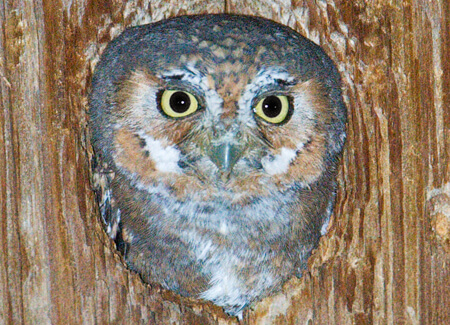
Elf Owl by Peter LaTourrette
Owls on the Move
Elf Owl is one of two highly migratory owl species in North America. (The other is the Flammulated Owl). Both of these species are insect-eaters; the absence during winter of insects in more northern locations may be factor in the birds' southbound journeys.
Northern populations of the Elf Owl migrate south to Mexico. Overwintering in Mexican thorn scrub, the birds share habitat with Varied Bunting, Black-capped Vireo, and Rufous Hummingbird. This species is benefiting from ABC's efforts to "bring back the birds" in this area, with our focus on conserving geographically linked habitats both north and south.
Donate to support ABC's conservation mission!





































